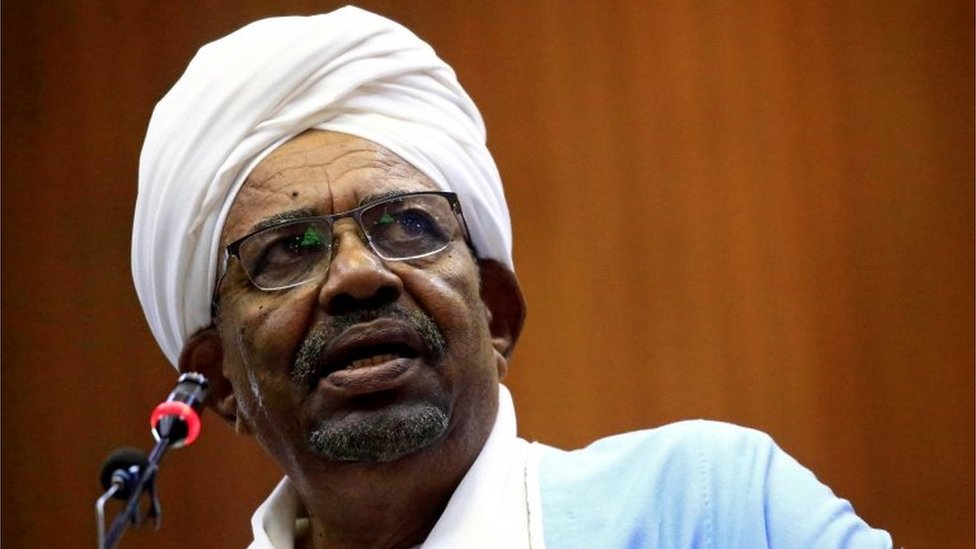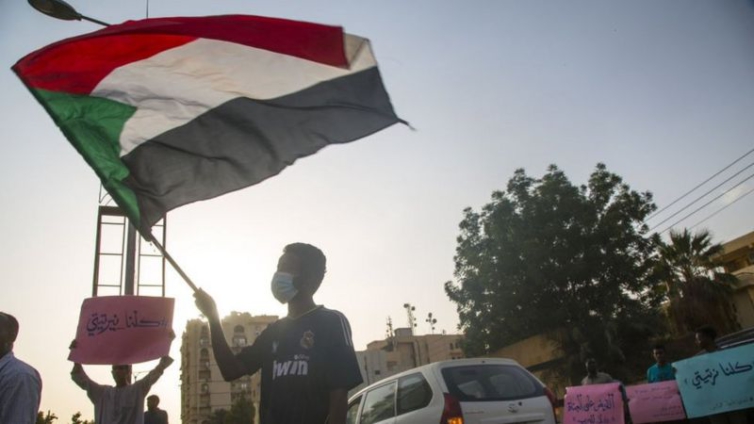Sudan is to normalise relations with Israel, US President Donald Trump says the latest in a series of Arab League countries to do so. Mr. Trump has also removed Sudan from the US list of state sponsors of terrorism, unblocking economic aid and investment.
Announcing the deal, Mr. Trump said "at least five more" Arab states wanted a peace deal with Israel. It comes weeks after similar moves by the United Arab Emirates and Bahrain.
The two Gulf states became the first in the Middle East to recognise Israel in 26 years. Jordan signed a peace deal with Israel in 1994, and Egypt in 1979. Mauritania, an African Arab League member, recognised Israel in 2009 but severed ties 10 years later.
The growing number of Arab countries formalising relations with Israel has been condemned by the Palestinians, who see it as a betrayal of their cause. Historically, Arab countries conditioned peace talks with Israel on its withdrawal from territories occupied in the 1967 war and the establishment of a Palestinian state with East Jerusalem as its capital.
How was the move announced?
Shortly after Mr Trump formally moved to remove Sudan from the US list of state sponsors of terrorism, reporters in Washington were taken to the Oval Office where the president was on the phone to the Sudanese and Israeli leaders.
Israeli Prime Minister Benjamin Netanyahu said the agreement was a "dramatic breakthrough for peace" and the start of a "new era". He said Israeli and Sudanese delegations would meet to discuss commercial and agricultural co-operation.
Sudanese Prime Minister Abdalla Hamdok thanked Mr Trump for removing his country from the US terrorism list and said the Sudanese government was working "towards international relations that best serve our people". Sudanese state TV said the "state of aggression" would end.
Mr Trump said he expected Saudi Arabia would normalise relations with Israel. His aide, Judd Deere, said the Sudan deal was "another major step toward building peace in the Middle East with another nation joining the Abraham Accords", the term used for the deals signed with the UAE and Bahrain.
However Palestinian Authority President Mahmud Abbas condemned the agreement, saying no one had the right to speak on behalf of Palestinians. Hamas, which controls Gaza, said it was a "political sin".
Meanwhile, Israel said it would not oppose US sales of high-grade military hardware to the UAE. The US had agreed to consider allowing the UAE to buy F-35 fighter jets after normalising ties with Israel.
Israel had said it needed to maintain a military advantage over other states in the Middle East. However, earlier this week it said the US had agreed to upgrade Israeli military capabilities.
How did we get here?
Sudan had been a foe of Israel since the latter's founding in 1948. Famously, it was the site of a declaration against normalisation with Israel in 1967, when the Arab League, meeting in the capital, Khartoum, swore "no peace with Israel, no recognition of Israel, no negotiations with it".
It fought in wars against Israel in 1948 and 1967, provided a haven for Palestinian guerrilla groups and is suspected of sending Iranian arms to Palestinian militants in Gaza several years ago - prompting alleged Israeli air strikes against it.
The political dynamics changed with the overthrow last year of Sudan's long-time ruler Omar al-Bashir and his replacement by a transitional civilian-military council.

Sudan's generals, who wield the real power, have supported establishing relations with Israel as a way to help get US sanctions on Sudan lifted and open the door to badly needed economic aid.
This week, Donald Trump said Sudan would be removed from the US list of state sponsors of terrorism once the US received $335m (£259m) in compensation for attacks on US embassies in Africa.
The attacks in Kenya and Tanzania in 1998 were carried out by al-Qaeda while its leader, Osama bin Laden, was living in Sudan.
Latest Stories
-
Gold Fields Ghana Foundation challenges graduates to maximize benefits of community apprenticeship programme
44 mins -
GBC accuses Deputy Information Minister Sylvester Tetteh of demolishing its bungalow illegally
55 mins -
Boost for education as government commissions 80 projects
1 hour -
NAPO commissions library to honour Atta-Mills’ memory
1 hour -
OmniBSIC Bank champions health and wellness with thriving community walk
1 hour -
Kora Wearables unveils Neo: The Ultimate Smartwatch for Ghana’s tech-savvy and health-conscious users
1 hour -
NDC supports Dampare’s ‘no guns at polling stations’ directive
1 hour -
Police officer interdicted after video of assault goes viral
2 hours -
KNUST’s Prof. Reginald Annan named first African recipient of World Cancer Research Fund
2 hours -
George Twum-Barimah-Adu pledges inclusive cabinet with Minority and Majority leaders
3 hours -
Labourer jailed 5 years for inflicting cutlass wounds on businessman
3 hours -
Parliament urged to fast-track passage of Road Traffic Amendment Bill
3 hours -
Mr Daniel Kofi Asante aka Electrician
3 hours -
Minerals Commission, Solidaridad unveils forum to tackle child labour in mining sector
3 hours -
Election 2024: Engagement with security services productive – NDC
3 hours

